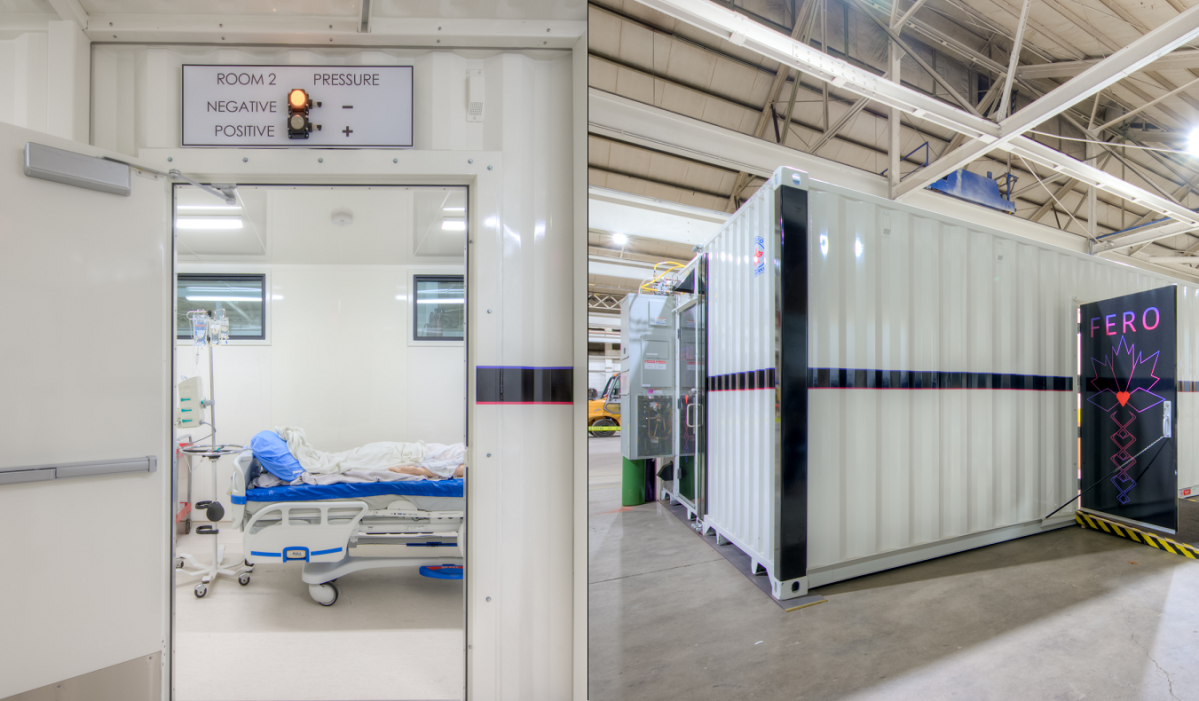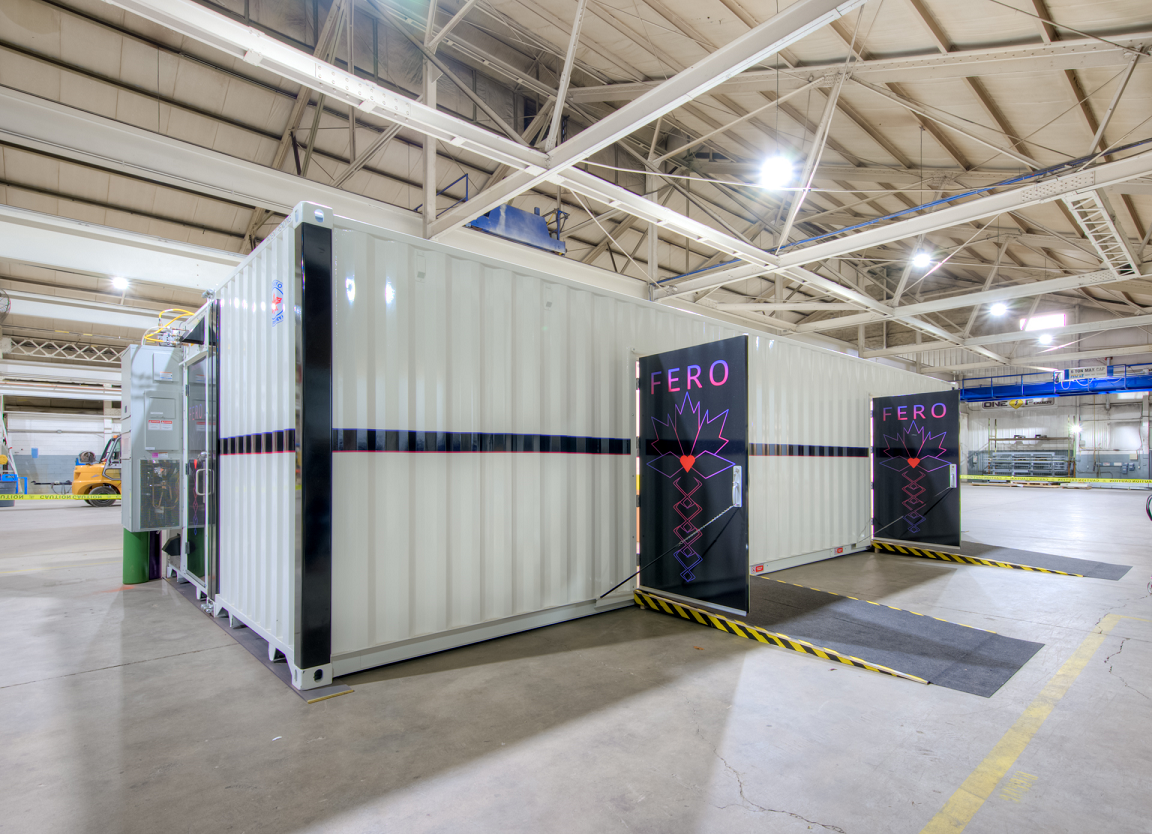A Hamilton company has partnered with Toronto’s University Health Network (UHN) to create mobile medical units that can help hospitals treat more patients during a pandemic or crisis event.

Fero International is turning shipping containers into portable ICUs and operating rooms with the help of the UHN, which has tested the units to ensure they’re up to hospital standards.
Sabrina Fiorellino, CEO of Fero, said she was motivated to do something to ease the burden on the health-care system due to her own family’s experiences.
“My mom is a double-transplant recipient, and my brother and sister-in-law are front-line workers,” said Fiorellino. “And my grandfather also passed during the first wave. Not from COVID, but was in the hospital, and I couldn’t visit him.”
The UHN’s transplant program — which saved her mother’s life — shut down during the first wave, and Fiorellino said that made her realize how crucial it is for hospitals to have enough resources to treat all patients during the pandemic.
“I wanted to ensure that during a second wave, the hospital could maintain its regular functions, so that other people’s lives could be saved, just like my mom’s.”
The units, which are being put together at AVL Manufacturing on Queen Street North, are made up of two shipping containers and consist of five rooms: an ICU, an operating room, two anterooms, and a nurses’ station.
Fiorellino said their goal was to create ‘flexible’ infrastructure that can suit the needs of different patients.
With a patient who has COVID-19 or another infectious disease, one of the ways hospitals prevent the virus from spreading is to create negative air pressure in a room — these units have the ability to change the air pressure, depending on what kind of patient is being treated in them.

Rebecca Repa, executive vice-president for clinical support and performance at the UHN, said it’s about being prepared for a worst-case scenario.
“We really need to be thinking, going forward, about our pandemic supplies, our ability to have product on hand, and this would fall into that category,” said Repa.
The UHN tested the unit’s ability to operate in a real-world crisis by running simulations from a fully-outfitted container.
Those simulations were conducted last week and determined whether or not the units would stand up to an emergency involving an actual patient.
“What they were trying to simulate was, could they run the code? Could they stabilize the vitals? Could they get people in the room? Could they move the equipment around in the room? And from there, really debriefing afterward on the things that worked and the things that didn’t.”
Repa said the units could be deployed in a variety of situations, including giving hospitals extra capacity to deal with an influx of COVID-19 patients.
They can also be shipped on trains or flatbed trucks, which she said gives them the flexibility to be used in more remote areas of the country.
Once Fero receives feedback from last week’s assessments, Fiorellino said they’ll be ready to start ramping up production of the units — she said many hospitals have already expressed interest in them.
“We’ve been asked to deploy them several times, but we always wanted to make sure they were safe and that they could be used by the people who needed them to save lives before we deploy them.”
Her hope is that one of the levels of government — whether provincial or federal — will be willing to create a stockpile of the units so they’re widely available to treat COVID-19 patients in isolation, allowing hospitals to maintain their current level of care.






Comments